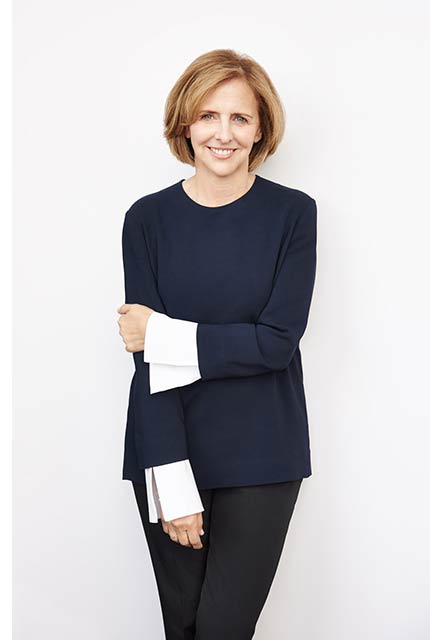
Director and screenwriter Nancy Meyers has given us Goldie Hawn in the army ranks (1980’s Private Benjamin), Mel Gibson as the ultimate woman whisperer (2000’s What Women Want), and a bread-baking Meryl Street in an affair with her ex-husband (2009’s It’s Complicated). Now, in her latest film The Intern, we’re treated to actor’s actor Robert De Niro playing the titular character — he’s the 70-year-old retiree, Ben Whittaker, who’s hired as an intern for a successful shopping site founded by Anne Hathaway’s wunderkind of a entrepreneur, Jules Ostin. Hijinks and heart ensue, as the film explores generational divides, the start-up world, whether a working mom can “have it all,” and the beauty of a pocket square — all while showing off, as is Meyers’ trademark, one beautifully curated interior after another. We sat down with Meyers and discussed all things The Intern — including her own interning fantasies and what advice she has for coeds lining up to be her helping hand.
When I write a film, I don’t get a full-blown idea; I get a germ of an idea. This started with the idea of different generations. It began as an older person who’s retired and restless, and goes to work as a volunteer or something like that. Then I thought of an intern… I thought that would be funny.
And the idea to set it in the world of a fashion start-up came from…
I thought, well, what would be the most unique environment for somebody of that generation to work? A start-up. The start-up world is, to me, just so exciting. I am a big online shopper so I have wondered, where does it come from? What do those places look like? It’s not only a new business model, it’s a new work environment — no private offices, the founder is right there in the middle, there are comfy communal areas, some have a gym, coffee bars, juice bars…
This film vs. my others…
I’ve written a lot of movies that are romantic comedies and [with this one] I wanted to explore some other kind of relationship. Every relationship isn’t romantic. This is about a friendship between two people. I found it interesting that there was a void in both their lives and that they could fill that void for each other.
The personal experiences that I put into this film…
The movies I make are all personal. For 30-some years, I’ve been making movies that really reflect not only the time I live in but what’s going on around me. When I did Baby Boom in the Eighties, I was a brand-new mom and was trying to figure that out. At this point in my life, I’m not retired, but I know what’s coming. I’m thinking about that.
And whether I’ve faced the same challenges Jules goes through in the film…
Her company has gotten so big, the investors think somebody else should come in and help run it, be the CEO, while she stays more creative. That didn’t happen to me, but I can relate to that. Like I said to somebody the other day, you’re the beating heart of the company, you want to maintain that. If somebody said, “Someone else should direct The Intern, someone else should direct It’s Complicated, maybe you’re not the right person…” I could imagine what that would feel like. It’s your baby and you want to see it to the end.
I set the visual tone for my films by…
I used to do big bulletin boards and, while I was writing, I’d always be tearing things out of magazines — you know, this is what the cottage looks like in The Holiday or this is what Diane Keaton’s house looks like in Something’s Gotta Give. This time I used Pinterest — it’s so brilliant. We’d project the Pinterest boards when we had a production design meeting.
Interior design vs. cinematic interior design…
You’re looking for different things than a real interior designer. Like, we turned Jules’ kitchen around. Most of the kitchens in these Brooklyn brownstones are turned the other way, but I didn’t want to shoot into a wall every time Ben was sitting at the counter. Now, when he’s sitting there, you can see into the living room — you want the depth. I don’t always want to have someone in a box. For Meryl Streep’s house in It’s Complicated, we built the set without walls between the dining room and the kitchen — it’s all open. I like the way that feels. I think it makes it less boring.
And I enjoy the interior design elements because…
I have a lot of fun doing it, I really do. It’s fun to think of what [your characters] would buy. You fantasize, OK, I’m Meryl Streep, I have three children, I’m divorced, I live in Santa Barbara — what does my house look like? Or, OK, would Jules like this fabric or is it too much? It was fun being in the mind of a 32 year old. That’s not to say a production designer doesn’t come to me with great ideas, but I think in a lot of movies the interiors aren’t necessarily the work of the person who wrote the script and came up with the characters. I’ve thought about it a lot. It’s kind of one brain.
As a working mom, my advice for a good work-life balance…
Balance is a big theme in the movie; it’s what Ben is always trying to teach Jules. But, you know, I don’t have the secret formula because there isn’t one. I think the formula that works for you is what you have to do. I was a very lucky working mom because, being a writer, I always worked at home. I could stop writing for an hour to pick my kids up, make their snacks and, when they started their homework, I’d go back to writing. When I made movies in L.A., my children would come to the set after school. As my kids got older, if I went on location, I just took them with me. I used to tell everybody in the crew to bring their kids at lunchtime because I didn’t want to be the only person who was allowed to bring my kids to work. So my story is unusual. I didn’t have a career where, for the last 30 years, I got in my car and went to work and came back at the end of the day.
If I could intern anywhere in the world…
I would love to intern at a start-up. I don’t have one in mind, but the more I could learn about that world… I mean, if I had another job, I think I could be good at that. I think I have the energy, and the stamina, for a start-up, even at my age.
When I was younger, I interned at…
I never had an internship. There weren’t interns when I was younger.
My advice for interns today…
Pay attention — I think being observant is really important. Really listen when someone asks something of you — don’t just half get it because then you’ll only half get it right. When people work for me, I always ask them to have a pen and a pad. I know listening is a problem, so just write it down — it helps. And ask questions when you don’t understand. When someone says, “I’m sorry, what do you mean?” I love that. Also work hard and get there early. That’s my advice.
More to explore in Culture
-
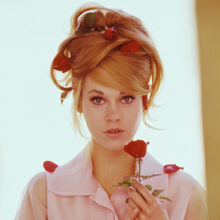 Culture
11.22.23
What’s Your Sign? Sagittarius
Culture
11.22.23
What’s Your Sign? Sagittarius
-
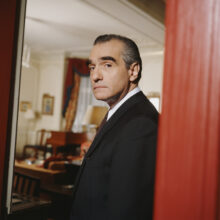 Culture
10.19.23
What’s Your Sign? Scorpio
Culture
10.19.23
What’s Your Sign? Scorpio
-
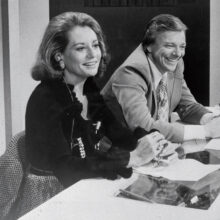 Culture
9.19.23
What’s Your Sign? Libra
Culture
9.19.23
What’s Your Sign? Libra
-
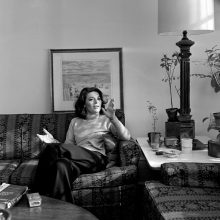 Culture
8.14.23
What’s Your Sign? Virgo
Culture
8.14.23
What’s Your Sign? Virgo
-
 Culture
7.14.23
What’s Your Sign? Leo
Culture
7.14.23
What’s Your Sign? Leo
